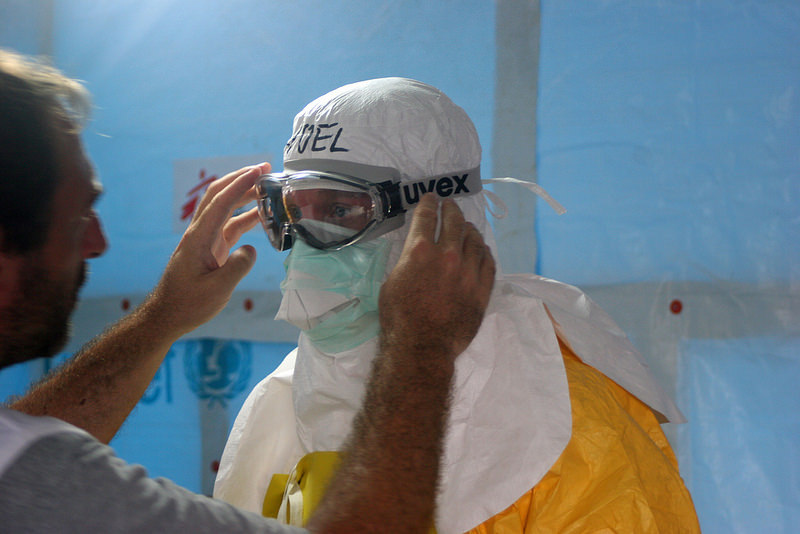| First, take a deep breath and be comforted by what we know. Ebola isn’t transmitted through the air. It requires contact with the bodily fluids of an infected person who is displaying symptoms. But when you’re done with that, you might want to sit down. What we know about this plague seems, at the moment, to be overshadowed by how woefully unprepared the health care system and the government has been in handling it. |
| | And because the Centers for Disease Control and Prevention defines those bodily fluids as including sweat, you might not want to shake hands with the guy next to you on a warm day if he looks a little peaked, just to be safe. We have heard a lot lately about the mistakes made at Texas Presbyterian Hospital in Dallas after Thomas Duncan wandered through the doors of the Emergency Room, and there were plenty. But as a Dallas Morning News columnist said, it was “plain bad luck” Presbyterian was the one hospital, out of thousands nationwide, that Duncan chose. Of those other hospitals, she said, “it’s disingenuous to suppose that every single one of them was fully prepared for the unexpected, unprecedented arrival of the first undiagnosed Ebola patient on the continent.” Still, Presbyterian handled things badly, and that’s not a good sign for the nation’s ability to contain this disease, given a global outbreak the World Health Organization predicts might rise to 10,000 new cases per week in Guinea, Liberia and Sierra Leone. Those mistakes seem to be multiplying. As of Wednesday, we learned that one more of Duncan’s caretakers has contracted Ebola. Before being diagnosed, she was allowed to fly to Cleveland, perhaps exposing other passengers and who knows how many people in Ohio. The CDC says it now has a rapid response team ready to train and assist health workers anywhere in the country as soon as it hears of a new diagnosis. But while that sounds great for the next one, or even five, patients, what happens if the number begins to multiply? Is it time yet to close the borders? Is it time to ramp up production of drugs that seem to work on the few patients who have tried them? If not, why? When pandemics are on the doorstep, public confidence is at a premium. Not only does confidence keep people from panicking, it allow health authorities to issue directives knowing people will obey, and that could become important fast. That confidence is a bit shaky right now. A recent Washington Post poll found only 19 percent of Americans believe strongly the government can handle an outbreak, with another 43 percent being somewhat confident. A whopping 65 percent are at least somewhat concerned about an epidemic. Meanwhile, the one confidence booster — stopping people from coming from West Africa and easily mingling with the masses, seems beyond our reach. Efforts are half-hearted, at best. The government is taking the temperatures of passengers at five major airports, but what about Salt Lake City, with its daily nonstop flights to and from Paris? The City of Light is a connecting point for African flights and has its own sizeable ethnic African population. What about other smaller cities with similar international flights? Health workers have a hard enough time worrying about people who might have been sneezed on by an infected nurse en route to Cleveland without having to consider the thousands more who come and go from this country daily, required only to leave a number where they might be reached in case of an emergency. Containment is one thing, but this strategy sounds as if we’re gearing up for a big game of catch-up. Five years ago, just after his term as secretary of health and human services ended, Mike Leavitt told me he expects pandemics in the 21st century. And, he said, “it always catches people by surprise.” Ebola may have lost its element of surprise, but it has been generations since the nation has had to deal with a real pandemic, with its stark and cruel realities. The next few weeks will tell whether we can take more than one deep breath and simply relax. |


 RSS Feed
RSS Feed

